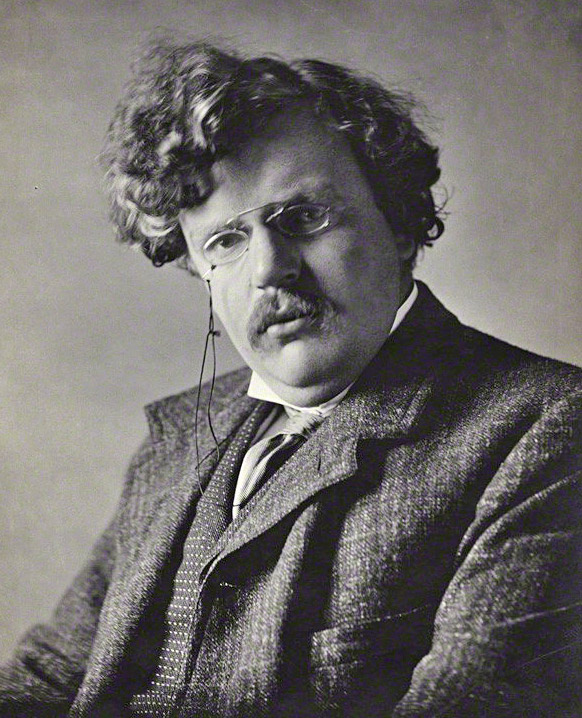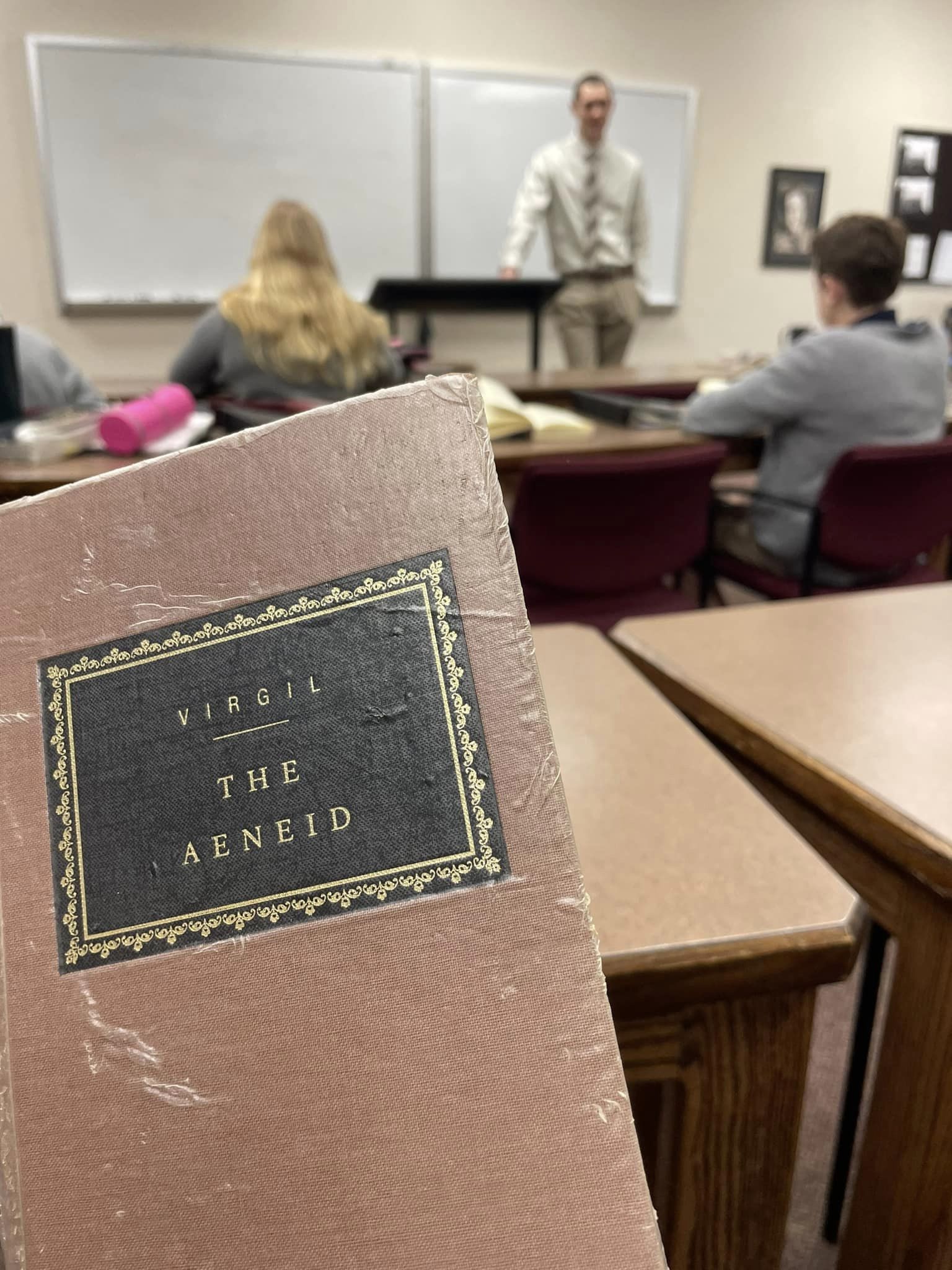Classical Christian educators often refer to a G. K. Chesterton quote about education really being “a transfer of a way life.” What we’re all working together to do at Trinitas is to create a Paideia of God, a culture in which the things of God are the things we think, say, and do. We want to, and want our children to, think God’s thoughts after Him, to speak and sing His word, and to do what His word commands. This is the transfer we’re hoping for.
G.K. Chesterton is responsible for one of my favorite quotes about education. He wrote,
“Education is not a subject and does not deal in subjects. It is instead a transfer of a way of life.” What we are trying to do at Trinitas is transfer a way of life to our students, a paideia, a way of being distinctly Christian in a world that seems increasingly hostile to that."
Topics: Blog Posts, Classical Education, Christian Education, True Education
With very few exceptions parents of students in classical Christian schools are not classically educated. Many of us, probably most of us, attended and then graduated from government schools or traditional Christian schools. By God’s grace, though, we have found a better path for our children.
One of the best things about classical education is the idea that parents can be educated alongside their children.
Topics: Blog Posts, Parenting, Classical Education, Parent Involvement
Classical Christian schools like Trinitas frequently refer to "the Great Conversation." At its root, the Great Conversation is simply an ongoing exchange of great ideas across time and space. It first requires each successive generation to listen and comprehend the ideas and wisdom of its forebearers and then to contribute constructively to the discussion. Given the lamentable state of public discourse in our world today, it seems that our present generation may be ill-equipped to contribute to the Great Conversation.
The president of the Association of Classical Christian Schools, David Goodwin, places the blame on the shoulders of modern education stating "We are bringing up children who do not have the skills to engage in intellectual discourse, who believe only in themselves, and whose deepest theological thought originates in their own mind.”
Topics: Blog Posts, Classical Education, Social Issues
Recently, I had the opportunity to participate in the Classical School Teacher Fair at Hillsdale College. Over a two-day period, I had the privilege of interacting with many high-caliber college students who are receiving a top-notch liberal arts education including two of our own recent graduates. This experience reminded me that our students work hard in a rigorous academic setting and often attain the goals they are aiming at, college being one of them. Even though our teachers encourage students to do their best rather than focusing on grades, the grades often come to students who work hard and have some academic talent, and getting into a good college is one reward for that. But the story doesn’t end there.
Topics: Blog Posts, Classical Education, College Admissions
We are living during an age in the West, perhaps in the whole world, wherein the prevailing view of all things could best be described as utilitarian. Modern Americans, in particular, have a way of reducing most everything down to its usefulness, its efficiency, and of course, its cost. Jobs go to the lowest bidder. We buy where we get the best deal. Our books are paperback no matter the genre, dime store romance or classic. Our buildings are metal, whether serving as an auto body shop or a church. After a few years of this kind of thinking, everything begins to look the same.
Topics: Blog Posts, Classical Education, True Education, Secular Education
This weekend, Trinitas students continued the long tradition of dramatic stage productions with two performances of C. S. Lewis’s The Lion, the Witch, and the Wardrobe. In the midst of amazing costumes and captivating sets, it is helpful for us to consider why Trinitas invests time and resources into drama.
By definition, drama is a picture or representation of human life in that succession and change of events that we call story told by means of dialogue and presenting in action the successive emotions involved. As Shakespeare wrote, all the world’s a stage and each of us plays a part. Drama enables students to enter past, present, and future worlds and to explore and discover the lives of others, whether in historical, biblical, or literary settings.
Drama is another tool for educators to use to teach the essentials of the core disciplines of Christian education.
Topics: Blog Posts, School Life, Classical Education, Drama
“Is not the great defect of our education today … that although we often succeed in teaching our pupils ‘subjects,’ we fail lamentably on the whole in teaching them how to think: they learn everything except the art of learning.” –Dorothy Sayers
Upon going to school, children are expected to take up certain “subjects,” to apply themselves to these subjects, and to eventually become masters of them. We as parents and teachers are not wrong to push our children and students to master those subjects; however, one of the drawbacks of focusing on mastering subjects is that we can develop tunnel vision in the process; we run the risk of focusing on the subjects and mastering what to think at the expense of learning how to think. We—and I mean everyone involved in the education of a child: parents, teachers, administrators, and the child—run the risk of just wanting to know what is going to be on the test.
Topics: Blog Posts, Classical Education, True Education

.jpg)








